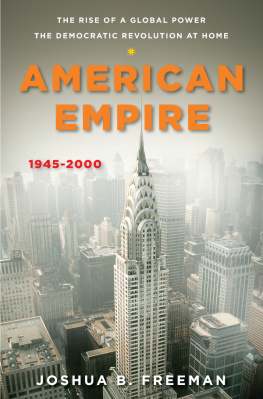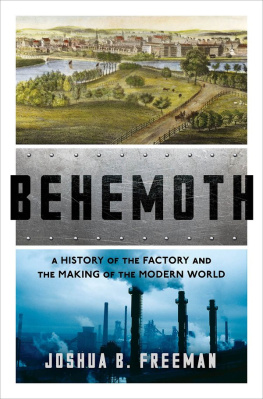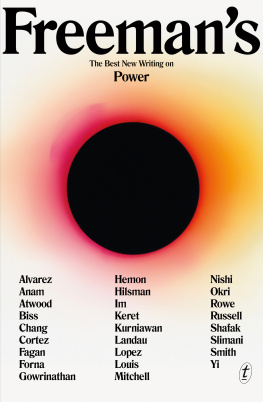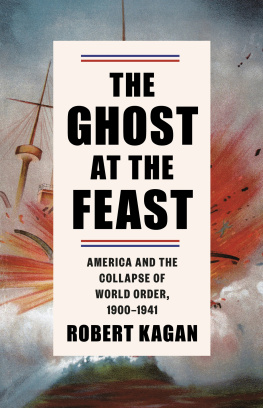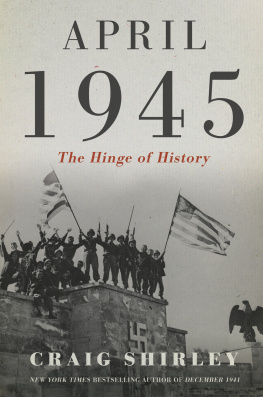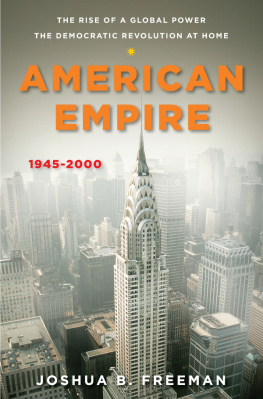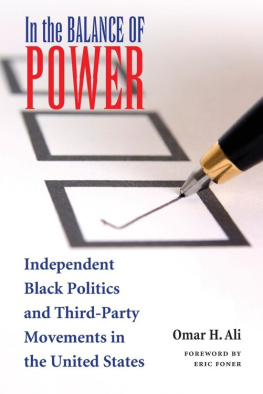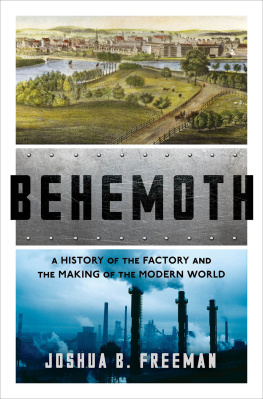Other titles in the Penguin History of the United States series
American Colonies
Alan Taylor
AMERICAN
EMPIRE

The Rise of a Global Power, the Democratic Revolution at Home 19452000

JOSHUA B. FREEMAN

The Penguin History of the United States
Eric Foner, Series Editor
VIKING
For Debbie, Julia, and Lena
Contents
Pax Americana (19451953)
The High Tide of Liberal Democracy (19541974)
The Resurrection of Corporate Capitalism (19751989)
The New World Order (19902000)
Introduction
F rom the end of World War II to the start of the twenty-first century, the United States was at its peak of power, as dominant in the world, in its own way, as Great Britain and Rome had been at the height of their empires. Economically and militarily it far exceeded all its rivals. Politically and culturally it had enormous influence across the world. Its language and cultural references became as close to a global lingua franca as there was. Its scientific and technological achievements were unmatched.
This book tells the story of the United States during those years. It examines the political and economic structures of the country, daily life, regional and national culture, and the relationship between the United States and the rest of the world. In doing so, it tries to explain why the United States took the particular path of development it did. The extraordinary accomplishments of the United States in the second half of the twentieth century brought bounty and freedom to hundreds of millions of Americans but never fully realized the widespread hopes at the end of World War II for a more peaceful world and more equitable society. The prolonged warfare, fearfulness, and economic troubles of the early twenty-first century owe more than a little to decisions made in the earlier epoch.
In the decades after World War II, Americans rarely spoke of empire or imperialism, especially in relation to their own society. Once common terms, widely used by both supporters and critics of policies meant to achieve control over foreign lands, by the mid-twentieth century they had come to be seen as archaic and irrelevant to a world of decolonization and cold war. Until the turn of the new millennium, only on the political left during the Vietnam era did imperialism get revived as a way of understanding the United States. The notion of the United States as an empire reentered political discussion soon before the terrorist attacks of 9/11 and much more so after them, among those who saw American imperialism as good for the world as well as among those who opposed it.
Empire comes in many forms, not just the annexation of territory, the Roman practice, or the creation of colonies, the operating mode of Spain, Portugal, Britain, and other European powers. At its heart, empire involves asserting influence and control over places, people, resources, and trade outside the original boundaries of a national entity. While empires almost always involve at least some use of military force, or the threat of its use, power can be exerted in many ways. Political, economic, cultural, and ideological influence can be as important to empire as ships, planes, and guns. After World War II, the United States did not seek to conquer territory or establish colonies, one reason its citizens rarely thought of it as an empire. But through treaties and alliances, investment and trade, Coca-Cola and rock and roll, Peace Corps volunteers and CIA agents, as well as bombers and infantry, the United States established itself as the most powerful human force on the planet. The American empire shaped the flow of history far from the borders of the United States, just as empire shaped history within them.
An American watching a World War IIera movie about the United States at the end of the twentieth century would have seen a country that in many respects did not look, sound, or seem radically different from the one she or he inhabited. Political and social continuities between World War II and the end of the century would have made it easy to ignore or minimize how much the contours of the country had changed during those fifty-five years (a quarter of the history of the United States to that point in time). From 132 million people in 1940, the population had more than doubled to 281 million. Places that had been nearly empty when the war ended came to house millions of Americans in communities with physical and cultural configurations unknown a half century earlier. Immigration had brought unprecedented diversity to the population. Technology had changed the way people lived, worked, and entertained themselves.
Within enduring social and legal structuresas a continuous constitutional government, the United States has few peers in longevityAmerica has always been an extraordinarily dynamic society. France, Germany, Russia, and China underwent multiple revolutions, which brought into being new political regimes and fundamental social changes; the United States experienced only one deep disjuncture, the Civil War, and even the aftermath of that traumatic event was resolved within the existing constitutional framework. But the United States has had a series of moments of rapid change that might be thought of as contained revolutions, transformations of society and daily life that had pervasive effects without leading to rupture. Between World War II and the twenty-first century, the country was shaped and reshaped by the militarization of American life that came with the Cold War; the democratization of society set in motion by the African American freedom struggle; the cultural changes that rippled forward from the 1960s; the redefinition of gender roles; the corporate restructuring of the economy in the 1970s and 1980s; and the rise of political conservatism that began at the same time.
Given the size and diversity of the United States and the relatively long period this book covers compared to the usual temporal units into which American history is dividedJacksonian America or the Progressive Eraany effort to find defining patterns of change necessarily involves simplification and selective focus. But within the vast array of events, private and public, that make up the history of the postWorld War II era, several large-scale arcs stand out that help map the distance the country traveled between the celebration when World War II ended and the shock and mourning five and a half decades later when it suffered the first major attack on its territory since Pearl Harbor.
One of the great stories of U.S. history, and a framing theme of this book, is the long period of sustained economic growth after World War II. When the war ended, the country, though rich by historical and world measures, had a standard of living far below what it would be a few decades later. Most families had little discretion in how they lived or spent their money, needing all their income and energy to get from one week to the next. Limited resources and parochial cultures meant circumscribed lives, rooted in local social worlds, with minimal interaction with people and places even a modest distance away.
Prolonged economic growth brought qualitative change. Rising national and personal incomes allowed people to live more comfortable, secure, and mobile lives than ever before. Prosperity diminished regional differences and supported an expansive notion of state function, including the ongoing projection of American power abroad. As Americans experienced a quarter century of prosperity, after a decade and a half of depression and war, they developed capacious notions of what was possible for themselves and their country, and in myriad ways tried to realize them.

